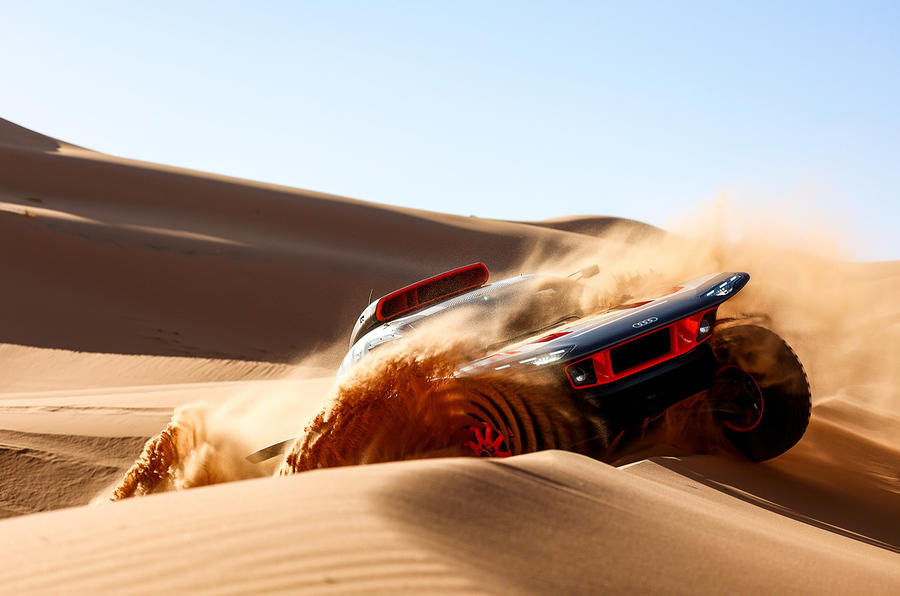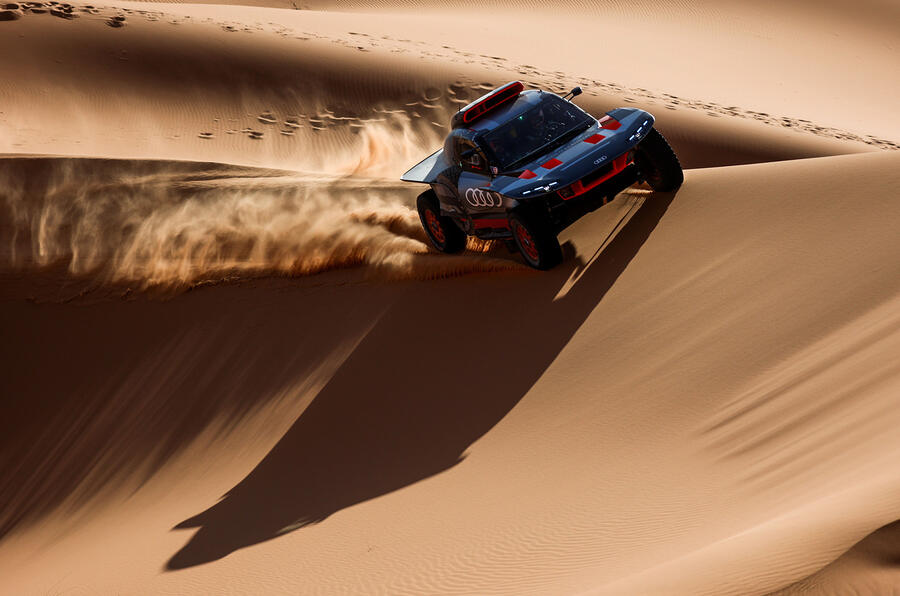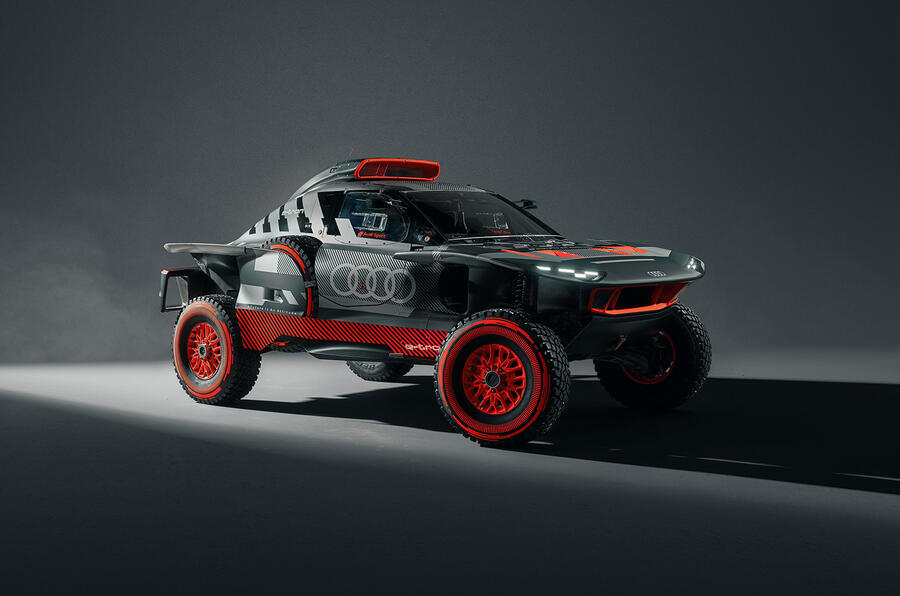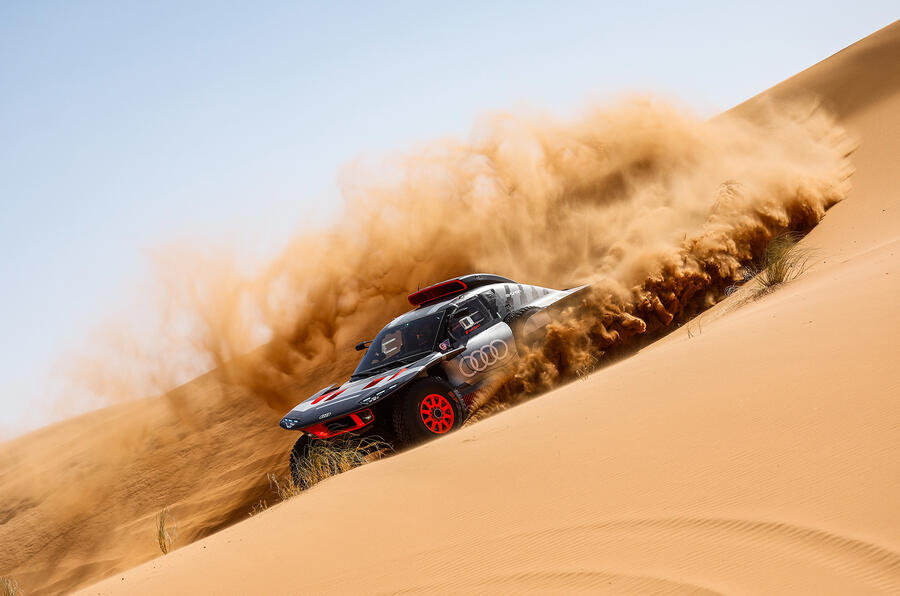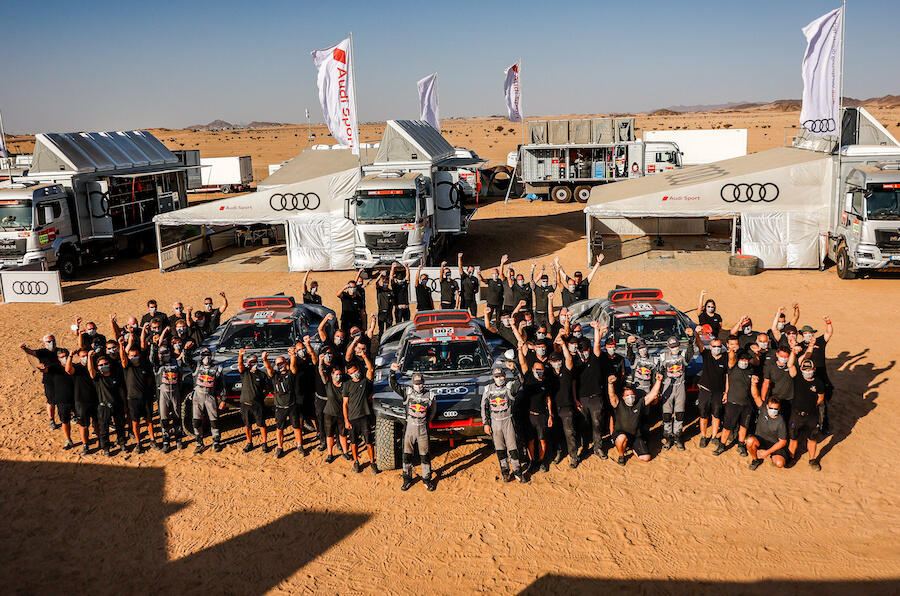Driven by its ‘Vorsprung durch Technik’ ethos of ‘progress through technology’, Audi has long used motorsport as the spark and ultimate proving ground for road-going innovations: honing quattro all-wheel drive in World Rally, hybrid power at the Le Mans 24 Hours, and all-electric drive in Formula E.
In 2022, Audi made history once again, developing the first car with electric drive to compete in the gruelling off-road Dakar Rally: the Audi RS Q e-tron. In the run-up to this year’s event, we’ve gone behind-the-scenes and under-the-carbon to find out what has changed, and how Audi is looking to go one better in 2023.
Learn more about Audi’s Dakar Rally program
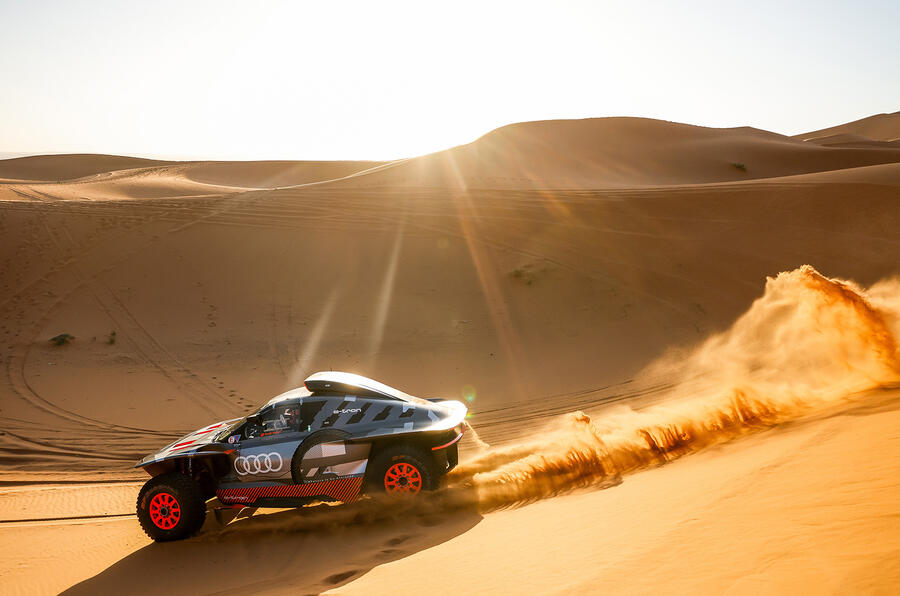
Taking on the ultimate challenge
First held in the deserts of North Africa in the 1980s, then South America’s Andes mountains in the 2000s, the Dakar Rally has been based in Saudi Arabia since 2020. Its two-week 8500km route – featuring day-long competitive stages up to 470km in length – takes teams right across the Arabian Peninsula from Yanbu on the Red Sea coast to Dammam on the Persian Gulf.
Along the way, competitors have to tackle rugged roads, rocky canyons and the towering dunes of the remote Rub' al Khali desert (ominously known as ‘The Empty Quarter’), all in searing 40C heat. It’s truly one of racing’s toughest and most gruelling challenges – especially for an electric car.
In 2022, Audi set out on the bold quest of using the Dakar Rally as potentially the toughest test bed for its e-tron technology. Bringing together experts from its successful Le Mans, DTM, World Rallycross and Formula E programmes, and adding the Dakar Rally-winning expertise of Sven Quandt and his Q Motorsport team for good measure, the result was the pioneering Audi RS Q e-tron.

